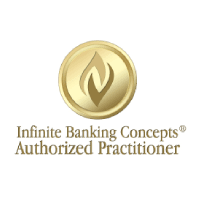 When thinking about wealth, one of the most important things folks need to evaluate is who they’re following. The vast majority of people are not leading their own way—they’re following someone else, and they’re usually following someone else they don’t even know.
When thinking about wealth, one of the most important things folks need to evaluate is who they’re following. The vast majority of people are not leading their own way—they’re following someone else, and they’re usually following someone else they don’t even know.
They’re reading a magazine, they’re listening to a radio program, they’re listening to a podcast, and they’re following the leads of other people who have no clue about this person’s life. Those people are giving general instruction, and 99 percent of the time those people out there have something to sell. The particular client is looking at that advice and says “Well I guess since everyone else is doing this, I should do it too.”
If everyone else is doing it, you can only get average results. You can’t get excellent or superior results by following the crowd—you have to make your own path.
Go Your Own Way
One of the first principles of prosperity that we discuss with folks is learning to think on their own. It kind of sounds a little bit challenging or edgy or pointed for me to say that, but I want people to start thinking about the values they’ve been operating on.
If they’ve tested these previous formulas and found them to be true, well then I guess they should continue to use them. But if they’re following someone else’s formula, and they’re not questioning or checking on real results, it might be time to start thinking outside the box and actually thinking for yourself.
Guess what’s going to happen? Your kids are going to follow the same lead that you’re putting out there. If you’ve given over control and discretion and authority of your financial life and personal economy, you’re going to be teaching your kids to do the same thing.
Take back control
When people have the gift and privilege to be able to learn, they actually have control over a perpetual ripple effect of all that money and how it’s going to go out into eternity, economy, and community. Most people are dispatching their money in a one-way direction, so it’s going out and accomplishing one goal. They don’t have any means to gather that money back, and they haven’t thought about the real long-term impact of lost earnings or lost opportunity cost on that cash.
Thinking about wealth
They haven’t really thought about the way the money works. What they’ve done instead is take the information, which is taken as gospel or real truth, from the financial institutions whose goal is to get our money and put it in their pockets. I don’t hold those people responsible, and I don’t say they’re doing anything immoral or illegal—I’m just saying that they’re operating on behalf of their own interests.
Alpha Omega Wealth Can Help
I want my clients to take a little bit more active role in thinking on behalf of their own interests so that they can follow the path of the money and find out where it goes and what those future earnings could do for their families. It’s kind of a graduate course in money that we’re asking our clients to embark upon. It isn’t a one answer solution, because for most people, they’ve been practicing financial formulas and habits that they’ve taken decades to cement and hardwire into their programming, and they haven’t gotten good results.
Everyone knows what the definition of insanity is, but for most people, they think the answer is more money. If I pour more money into an imperfect system, what am I going to get? Imperfect results.
What we have to do is go back to square one and think about what our operating premise is. How are we thinking about money? How are we thinking about wealth, which is a larger topic than money? What do we want our wealth to consist of? What do we want our legacy and inheritance to consist of? Is it just a finite number of dollars, and we hope that the kids will do the right thing with it?
If [your kids do the right thing with your money], they will buy into the mainstream system of non-education when it comes to finance because there’s no financial education in this country except what is being conducted by small pockets of financial leaders—people like ourselves and our firm and other across the country that I’m in a study group with.
There are people who have a real interest in encouraging Americans to start thinking about the wealth they are creating.


